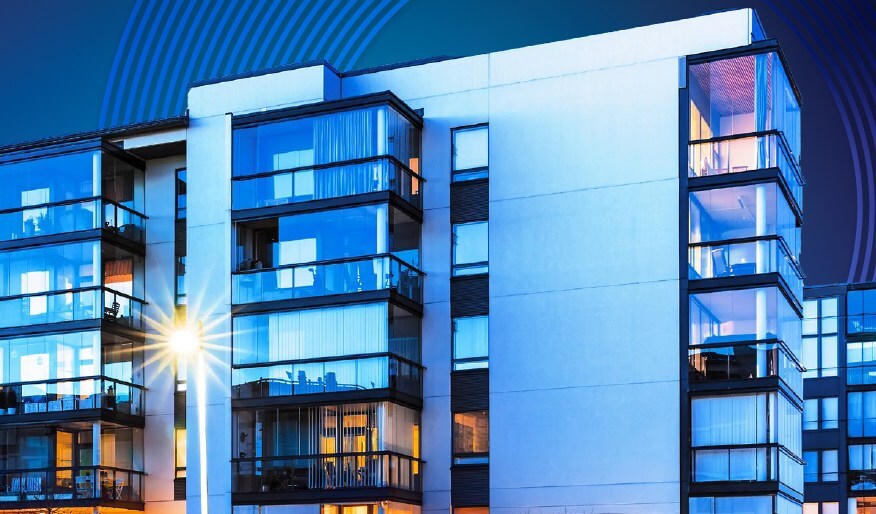How does a property manager retain tenants? With meaningful staff interactions, engaging amenities, and a sense of connection, according to the “2025 Resident Experience Trends and Insights Study from Chamberlain Group’s myQ Community. The study also uncovered that many operators overlook the importance of digital tools that residents rely on, revealing an opportunity to drive higher satisfaction.
To improve resident satisfaction, the report suggests that operators can elevate the resident experience by thoughtfully applying AI and other digital tools. The study also notes that renters are enthusiastic about AI’s ability to AI streamline and simplify tasks such as maintenance requests, freeing human staff time for vital resident interactions and key moments that increase renter likelihood to renew.
The study included conversations with over 180 property managers, developers, and owners across Class A multifamily properties. Additionally, a national survey was conducted with more than 2,300 renters aged 18 and older currently living in Class A apartments in high-rise, mid-rise, or garden-style communities. The research was conducted in partnership with Peerless Insights, a San Francisco-based research consultancy.
In partnership with RPM Living, a multifamily property management, investment and development company, and EliseAI, the AI company automating complex housing and healthcare systems, the myQ Community study revealed four factors that shape resident experience:
The four core pillars that have the greatest impact on resident satisfaction and retention are: Property Management Staff, Tech Solutions, Community and Amenities. These pillars are areas where operators can make immediate improvements to drive higher satisfaction.
The findings highlight that while residents value Property Management Staff the most, Tech Solutions are a key area for growth as the second most important satisfaction driver, but with the lowest performance rating at 27%. This presents a significant opportunity for operators to enhance their offerings.
Property Management Staff: Residents value friendly day-to-day interactions, a simplified maintenance request process and flexibility during extenuating circumstances more than formal major touchpoints like move-in or routine outreach. The #1 resident priority is overall friendliness when they interact with staff, with a current satisfaction rating of 41%.
Technology Solutions: The gap between high importance and low resident satisfaction makes technology investment a key area for growth. Seamless, high-quality access options like key fobs, mobile credentials, and smart locks are the strongest drivers of satisfaction with technology. Additionally, apps that help residents engage with the community and reserve amenities are also highly valued. A top resident priority is the availability of access options, which only 33% of residents rate as excellent.
Community: The study also found that a genuine and personalized building tour is crucial for setting expectations and helping residents determine if the community is the right fit for them. The No. 1 resident priority is their fellow residents being clean and respectful of common areas, with 35% of residents being in complete agreement.
Amenities: Residents prioritize amenities that are modern, new and save them time and money. Convenience and value are strong drivers, as residents want amenities that reduce their monthly costs, such as an on-site gym. The top resident priority is how modern and new amenities are, with only 18% of respondents rating them as excellent.
“Our research clearly shows that technology is no longer a luxury — it’s a critical component of a great resident experience,” said Matt Neff, vice president of Commercial Services, myQ Community. “By investing in seamless access solutions and community-building apps, operators can directly address resident needs, reduce friction in daily life, and free up staff to focus on the personal interactions that truly build loyalty and drive renewals.”
“Extraordinary service doesn’t happen by chance – and this research clearly reinforces that,” said Alexis Vance, chief experience officer at RPM Living. “At RPM, we believe it’s not just about delivering a good experience for our residents but about unlocking an extraordinary one. That means striking the right balance between human connection and automation. When we do that well – leading with genuine human touch, leveraging technology to elevate the experience and creating a seamless handoff between the two – everything else naturally follows: engagement, retention and performance.”
Property managers and renters also expressed confidence in the potential of artificial intelligence to streamline routine tasks. In fact, 71% of property managers stated they would “definitely or probably use” AI for coordinating repairs and service. Renters also show high confidence in AI, with 67% feeling “extremely or very confident” using it to schedule apartment tours and for the maintenance and service request submission process.
The report suggests a hybrid model where AI handles repetitive, administrative tasks and human staff can focus on high-impact interactions that require empathy and nuance, such as de-escalating emotional issues and building trust.
“The strong interest from both property managers and residents in using AI to enhance onsite experiences is consistent with the growing demand we’re seeing from our customers,” said Minna Song, co-founder and CEO of EliseAI. “AI allows renters to get instant answers and allows property managers to focus on what matters most to keep improving the experience of their communities. It paves the way for more personalized support and timely access to information.”




















